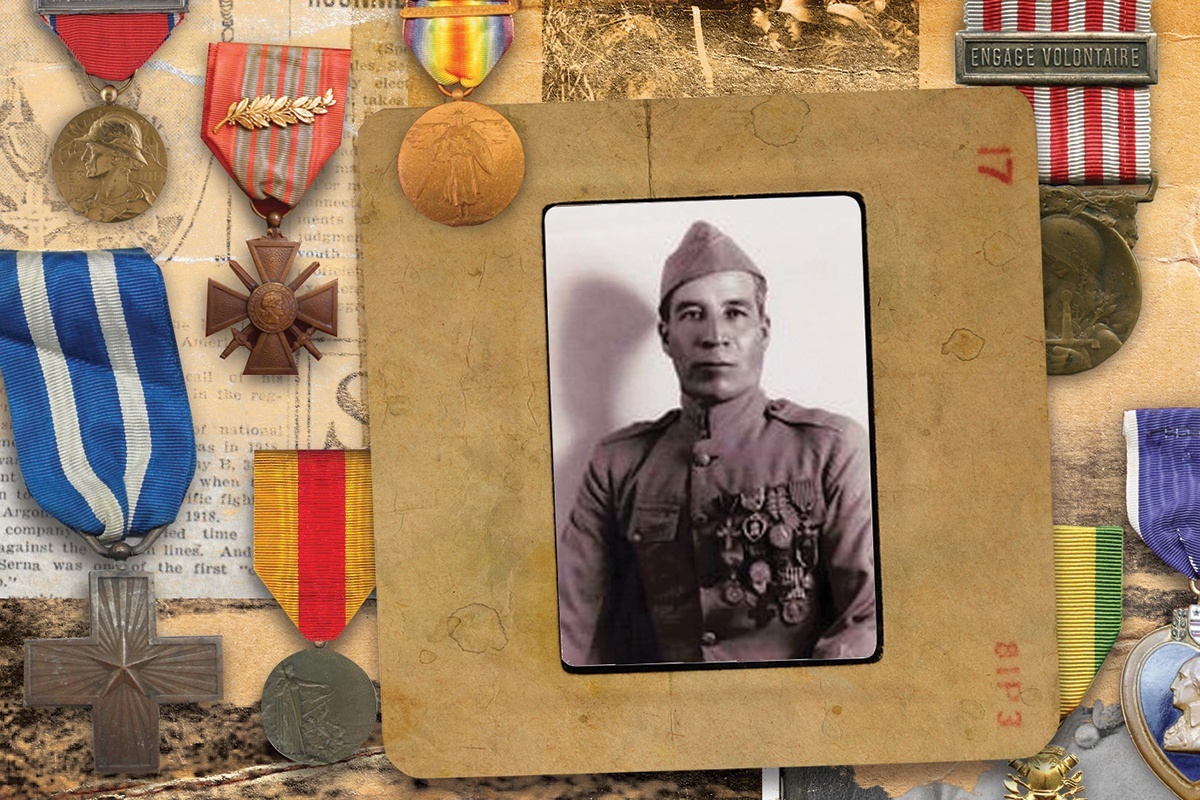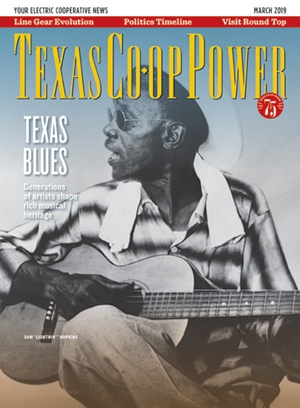Around 1915, an unassuming lad named Marcelino Serna traveled 220 miles from his home in Chihuahua City, Mexico, to El Paso. He was searching for work and a better life in the United States. Not only would he find work, but he also would give his adopted country a gift of uncommon valor.
Serna was born in a mining camp April 26, 1896, and he yearned for a piece of the American dream. He found railroad work that took him to Kansas, but two years later, he was working in Colorado’s sugar beet fields when federal officials arrested him. To avoid deportation and prove he wanted to be a U.S. citizen, Serna volunteered for the Army.
World War I was raging in Europe when the U.S. entered the fray in 1917. After three weeks of training, Serna was shipped to England. Sent to fight in the trenches of France, he learned through an interpreter that his superiors offered him a discharge because his papers stated he was a Mexican citizen. He declined.
As Serna’s unit moved toward the Meuse River and Argonne Forest in northeastern France, a German machine gunner shot down 12 soldiers. Serna, the scout for his unit, advanced.
“I jumped up and ran about 10 yards and then hit the dirt,” he told the El Paso Times in 1962. “I kept this up until I was on the machine gunner’s left flank. He had hit my helmet with bullets twice during the run. When I got close enough, I threw four grenades into the nest. Eight Germans came out with their hands up. Another six were in the nest—dead.”
During a second scouting mission at Meuse-Argonne, Serna captured 24 German soldiers. He then shot a sniper at 200 yards and lobbed three grenades into a trench. The survivors came out with their hands up.
After months of combat in which he didn’t get so much as a scratch, Serna was shot in both legs by a sniper four days before the armistice. He hobbled toward his lines using his rifle as a crutch. He spent several months in an Army hospital in France where Gen. John J. Pershing, commander of the American Expeditionary Forces, pinned a Distinguished Service Cross on him.
Serna’s uniform eventually bore two French Croix de Guerre with bronze palm medals, an Italian Croce al Merito di Guerra, a French Médaille Militaire, French Commemorative Medal, World War I Victory Medal with five stars, Victory Medal with three campaign bars, St. Mihiel Medal, Verdun Medal and two Purple Hearts, which made him the most highly decorated World War I soldier in Texas.
“Marcelino Serna is remarkable for the many combat decorations he received, and for the one he did not receive—the Medal of Honor,” says Andrés Tijerina, professor of history at Austin Community College. Serna did not speak French when he received the Croix de Guerre, Tijerina says, nor did he speak Italian when he received the Croce al Merito. Yet U.S. Army superiors told him he was not eligible for the American Medal of Honor due to his limited English.
After the war, Serna settled in El Paso, where he and his wife raised six children. In 1924, he became a citizen and participated in Veterans Day parades until his death in 1992 at the age of 95. In 2017, the Tornillo Port of Entry in El Paso was renamed the Marcelino Serna POE.
Martha Deeringer, a member of Heart of Texas EC, lives near McGregor.


